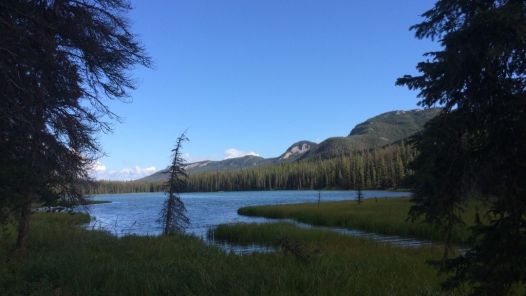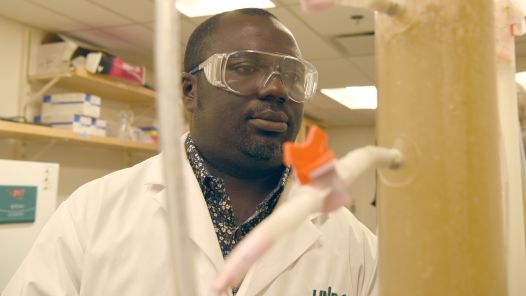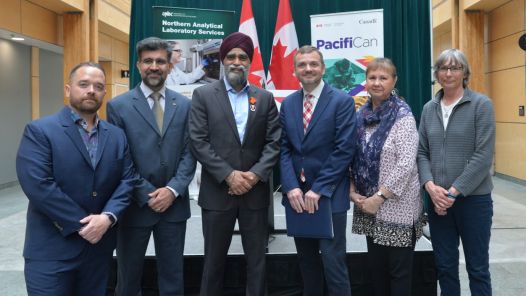From UNBC faculty research in the news to undergraduate experiences, get a taste of the UNBC research world
Young entrepreneur looks to pave path for others
UNBC student Kyndra Farrell won a Face of Today Scholarship and a Fellowship from the Herrendorf Family Foundation. The Bachelor of Commerce student is putting that support to good use this summer as she works to create a pilot project aimed at encouraging young people in rural communities to pursue their entrepreneurial dreams.
Concepts of wilderness and economic development
First Nations Studies Associate Professor Dr. Daniel Sims has been working extensively with communities in the Tsek’ehne Nation to determine how concepts of wilderness have impacted economic development in the territories. A new grant from the Social Sciences and Humanities Research Council Insight Grant program will help Sims further his research.
Extracting value from wastewater
Environmental Engineering Assistant Professor Dr. Oliver Iorhemen is exploring techniques to extract valuable resources from wastewater facilities. A new grant from the Natural Sciences and Engineering Research Council of Canada Discovery Grant program will help him further his research.
Federal funding to support joint Indigenous cultural safety initiative in health systems
The National Collaborating Centre for Indigenous Health and the Health Arts Research Centre, both housed at UNBC, are receiving a $1-million Indigenous Services Canada grant for a two-year project focused on promoting cultural safety and Indigenous knowledge in health care.
New research centre to foster northern clinical and medical life sciences research
A collaboration between UNBC, UBC Faculty of Medicine and Northern Health, the new Northern Centre for Clinical Research will create more opportunities in the north for clinical and biomedical research.
Student paper earns scholarship prize
UNBC student Lydia Kinasewich won the W. Kaye Lamb scholarship for her research paper about the history of Harrison Hot Springs. Awarded by the British Columbia Historial Federation, the competition is open to all students writing about topics related to B.C.'s history.
UNBC receives close to $2 million in federal funding to establish Environmental Solutions Innovation Hub
Funding the Hub will help support advancement of innovative environmental and clean technologies in northern B.C.
Greenwood named interim Scientific Director of CIHR Institute of Indigenous Peoples’ Health
As part of her new role with the CIHR IIPH, which will be housed at UNBC, Professor Dr. Margo Greenwood will help to advance Indigenous self-determination in health research.








